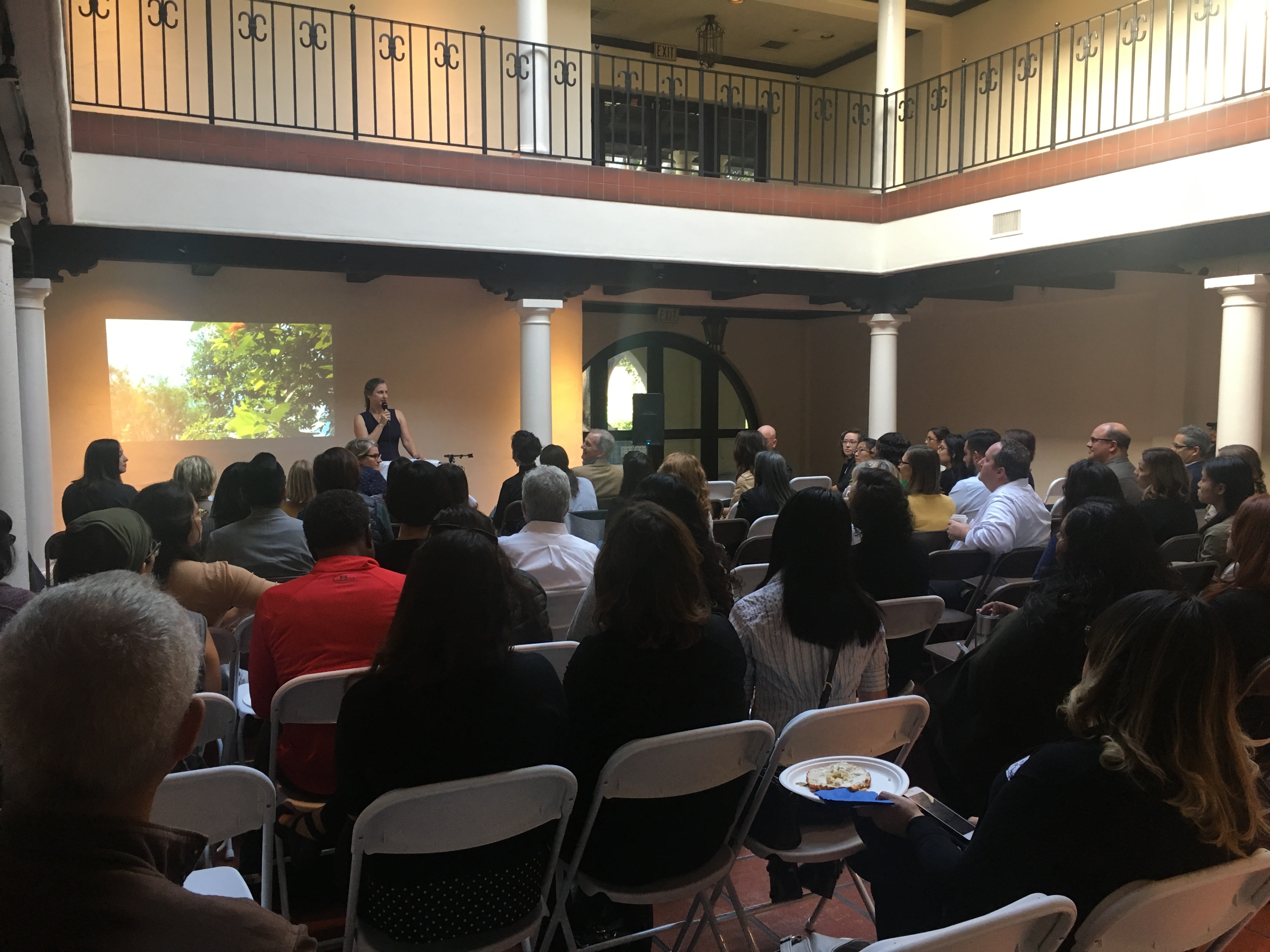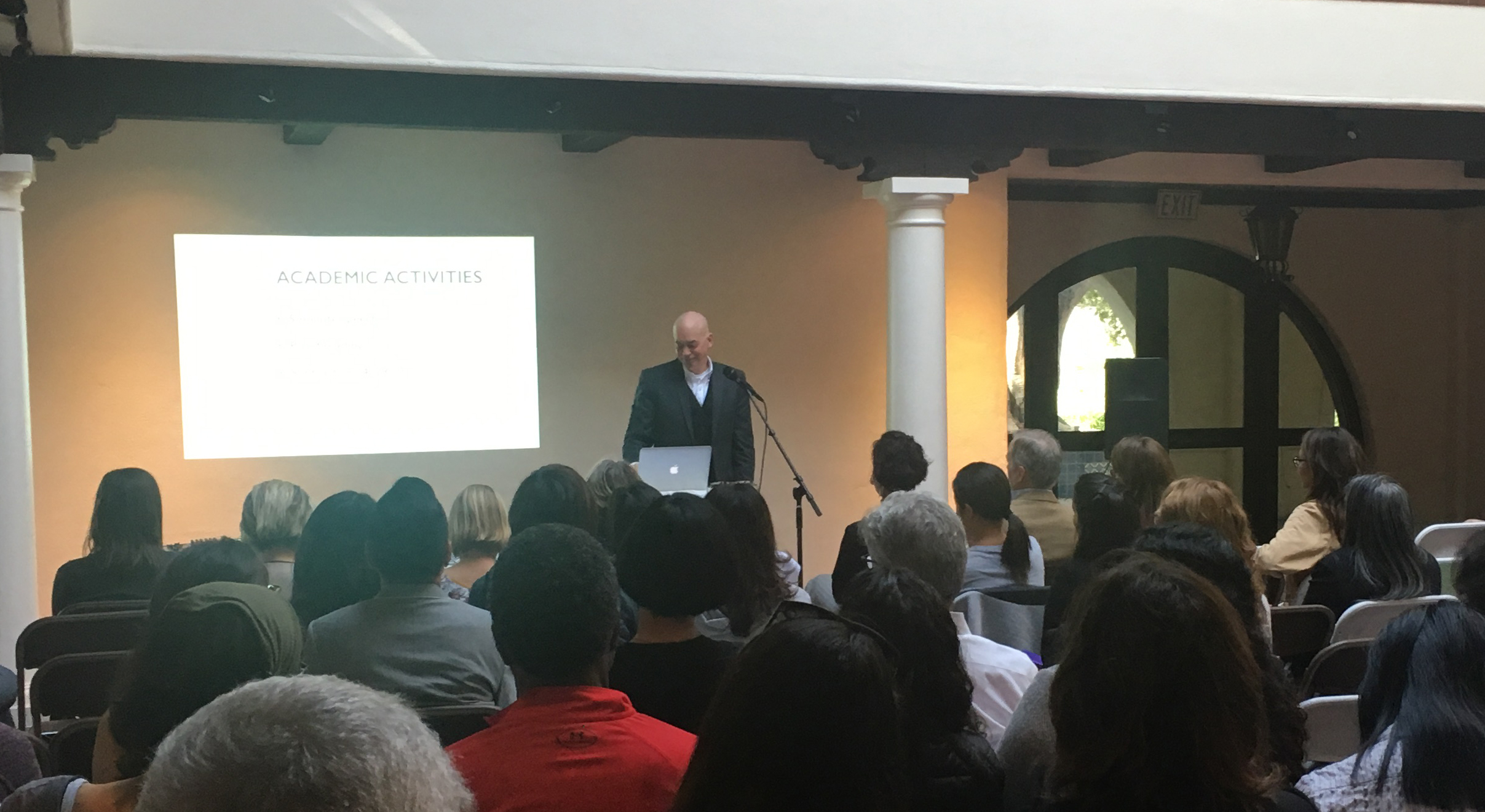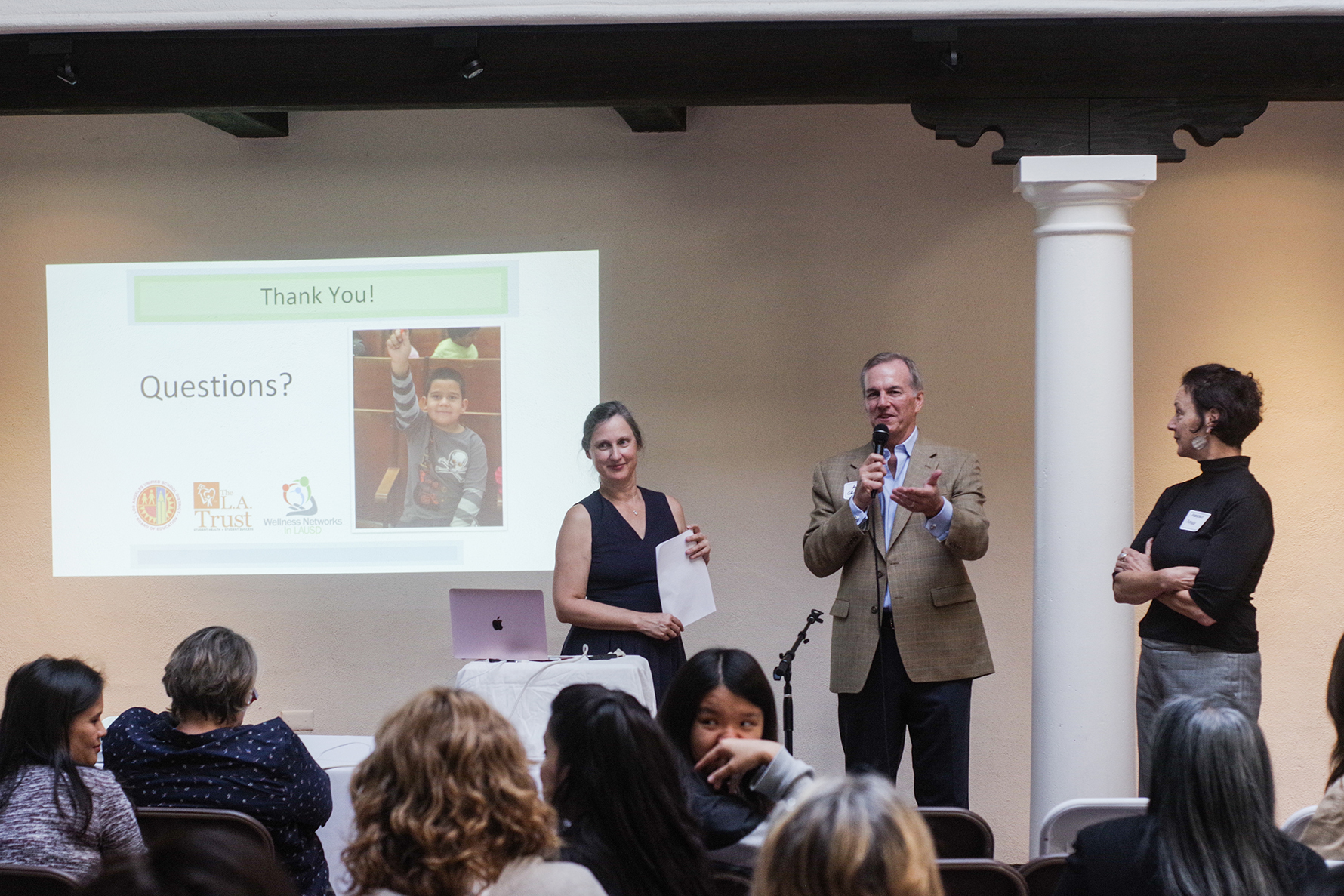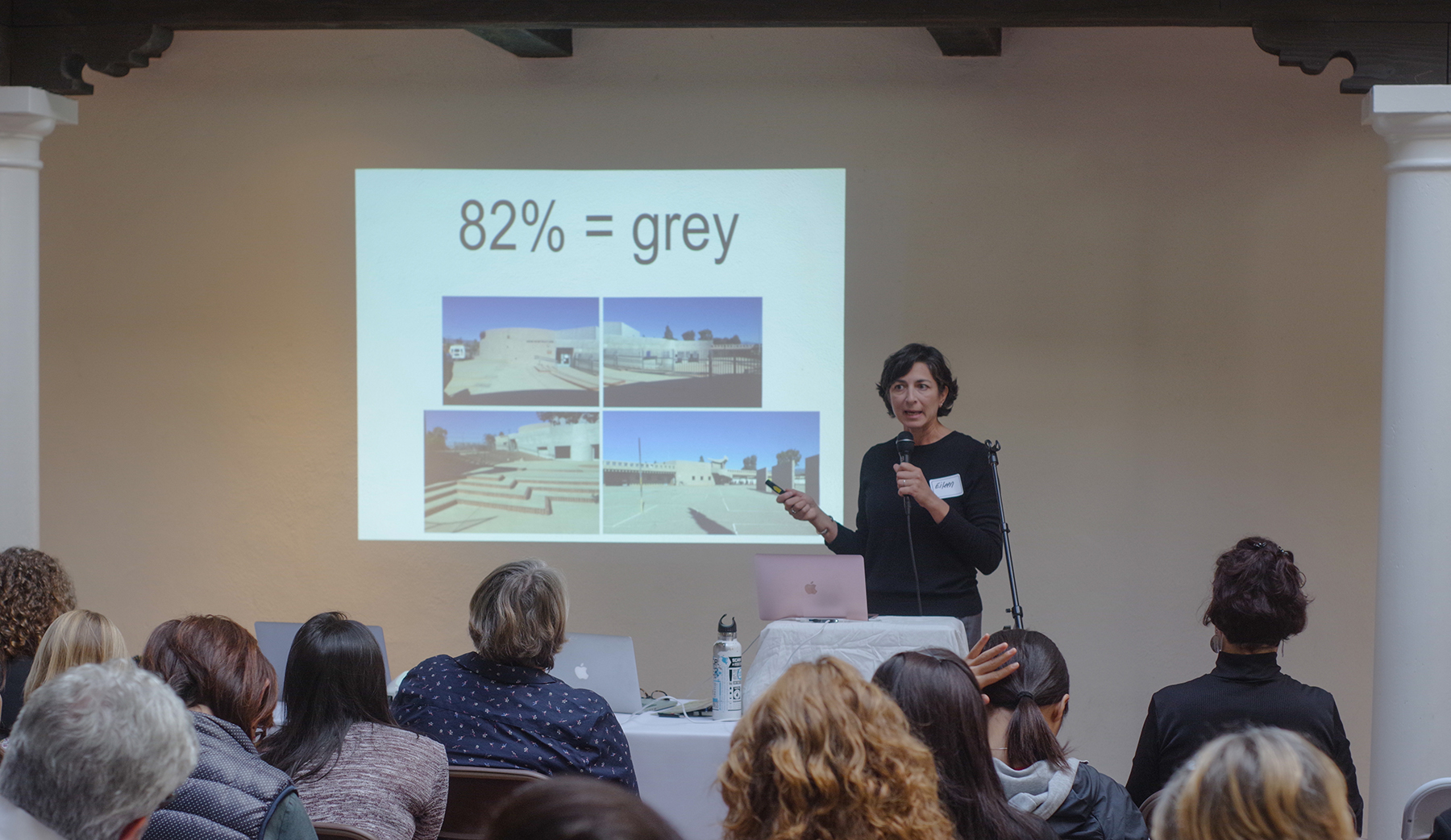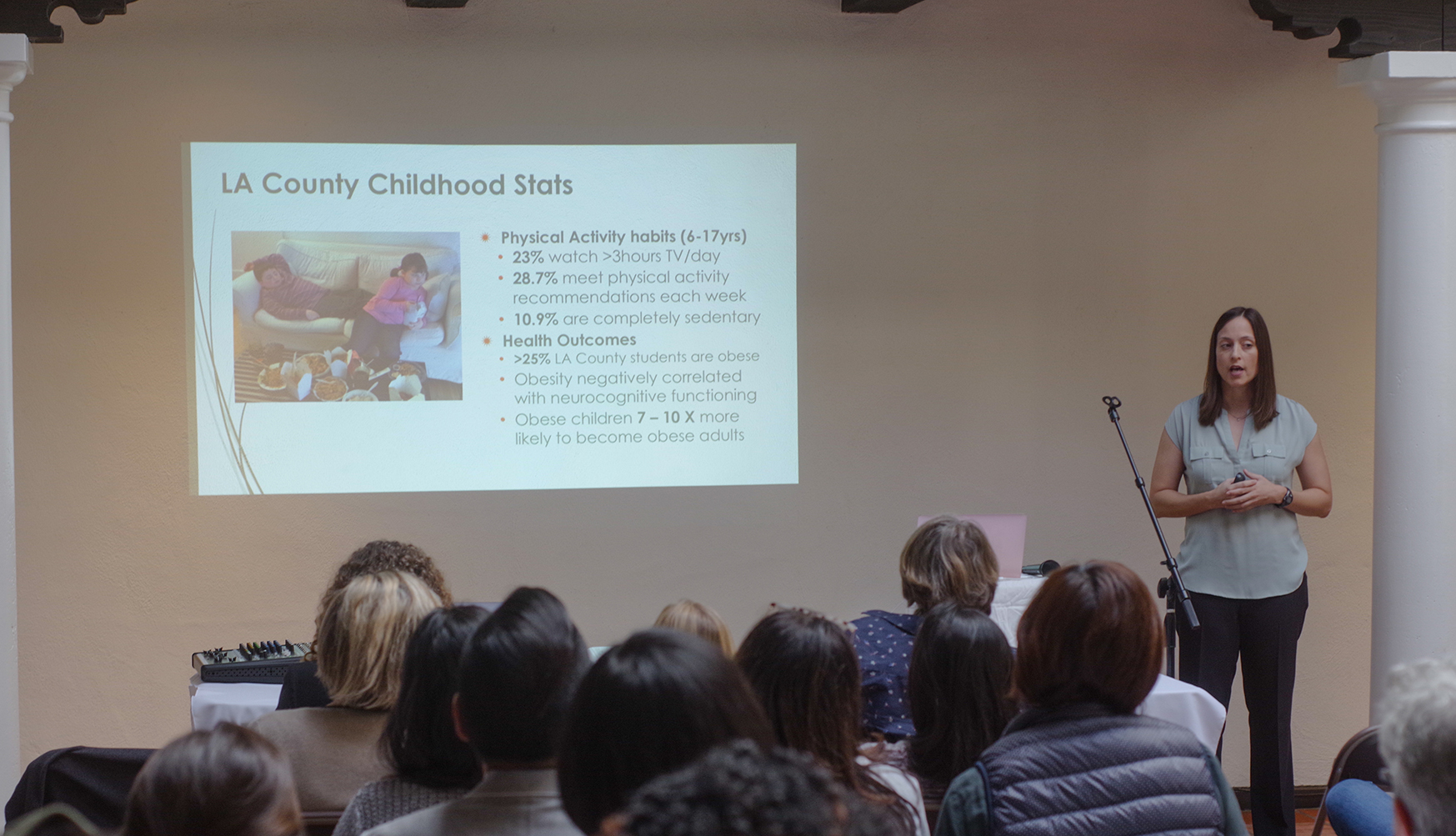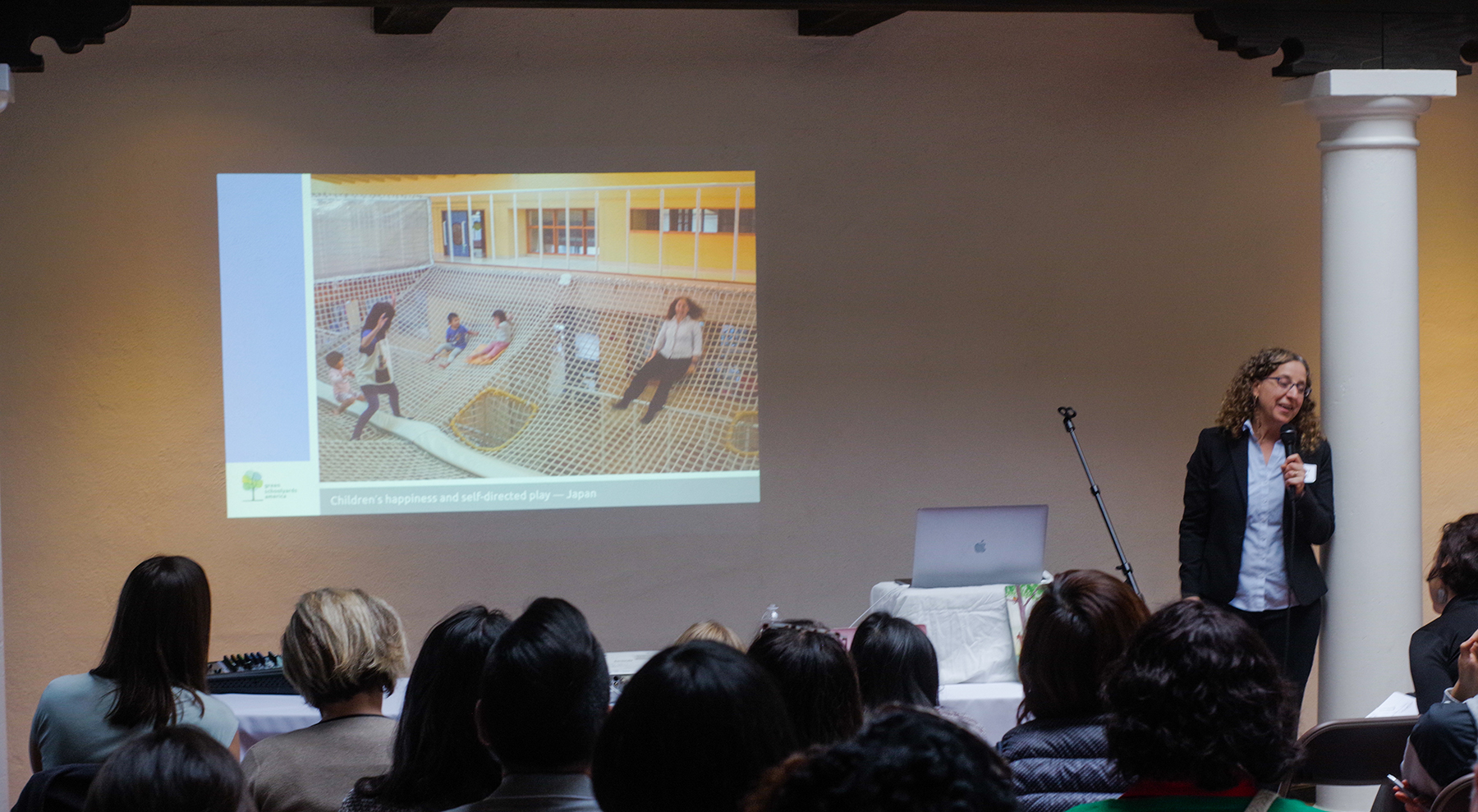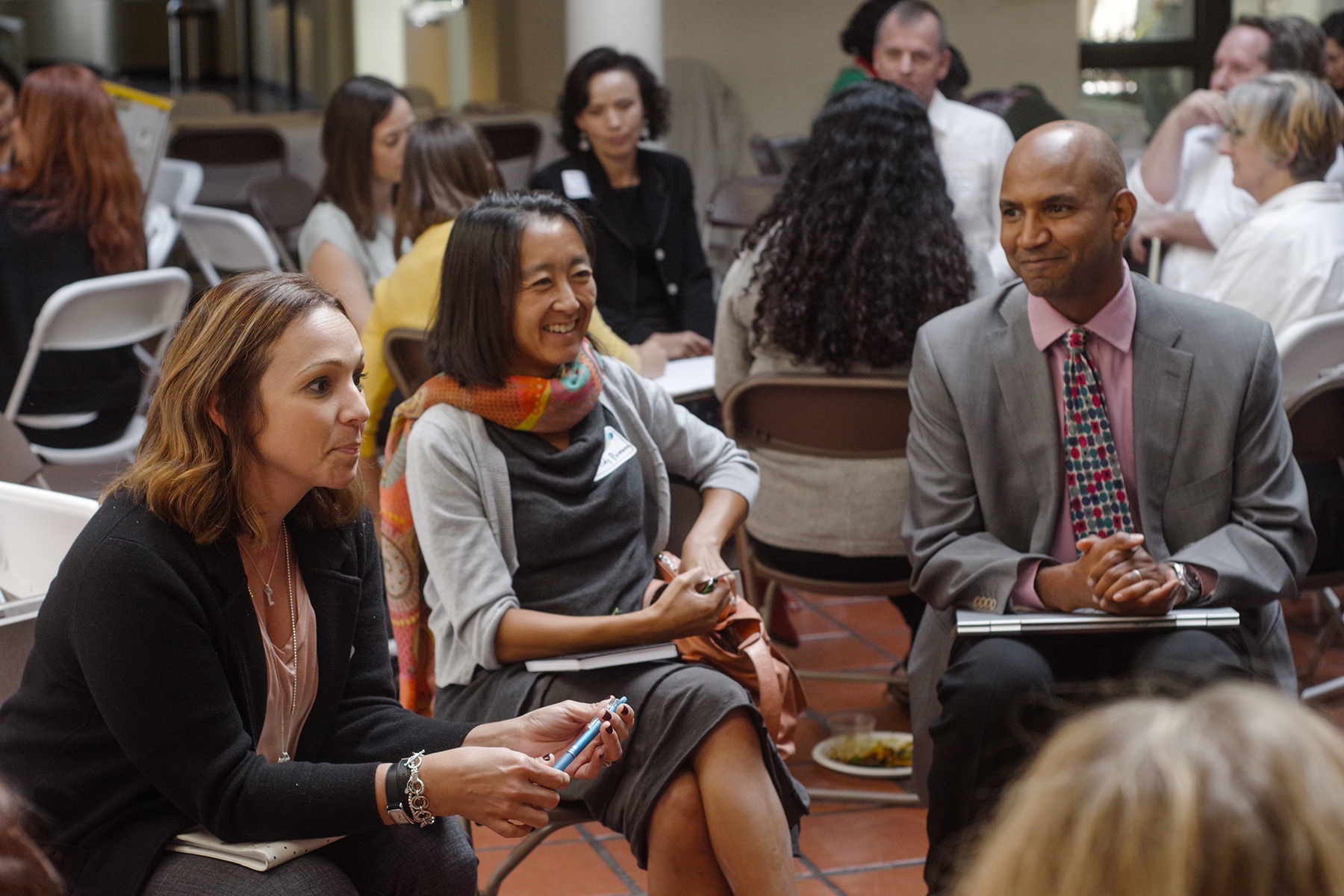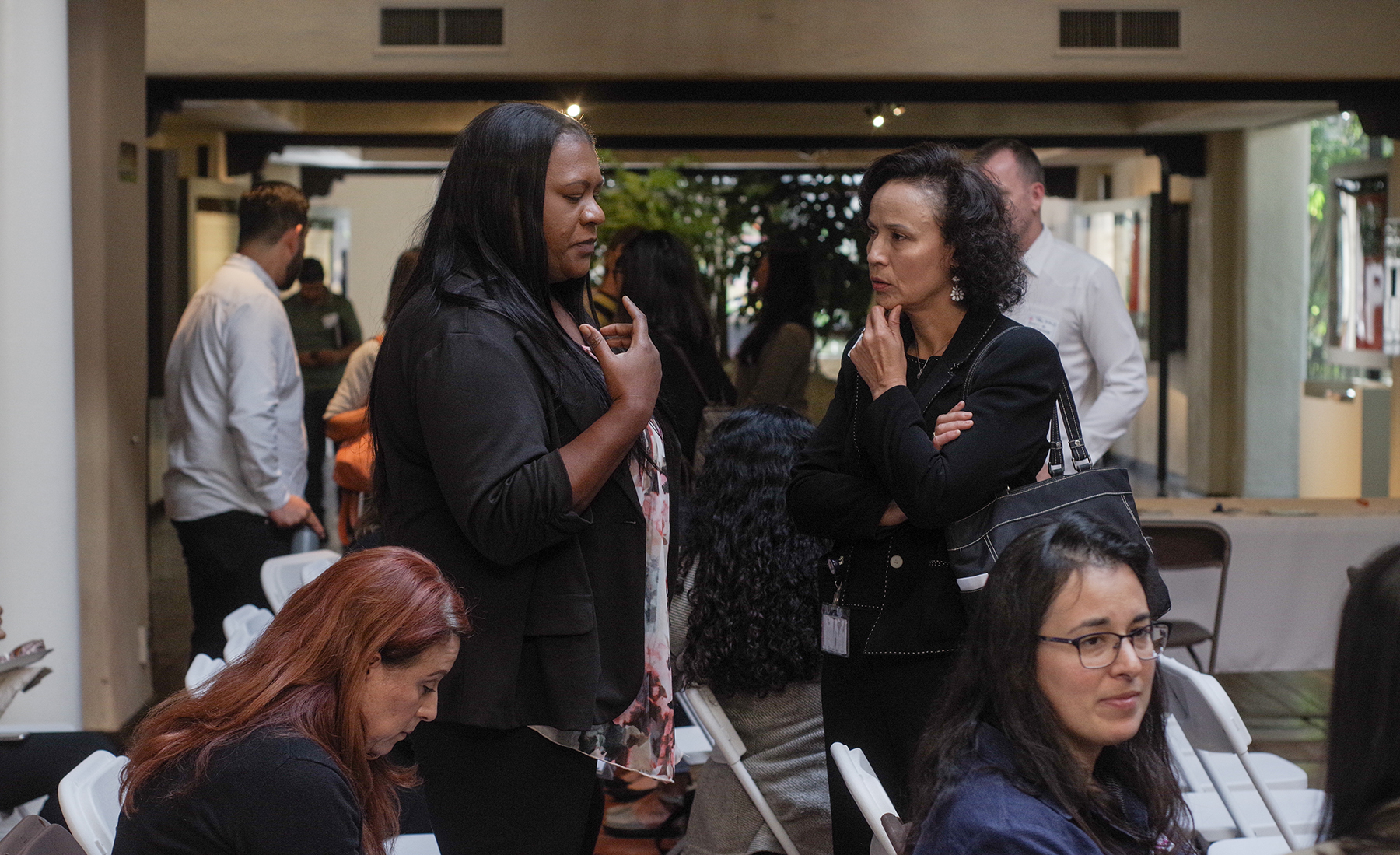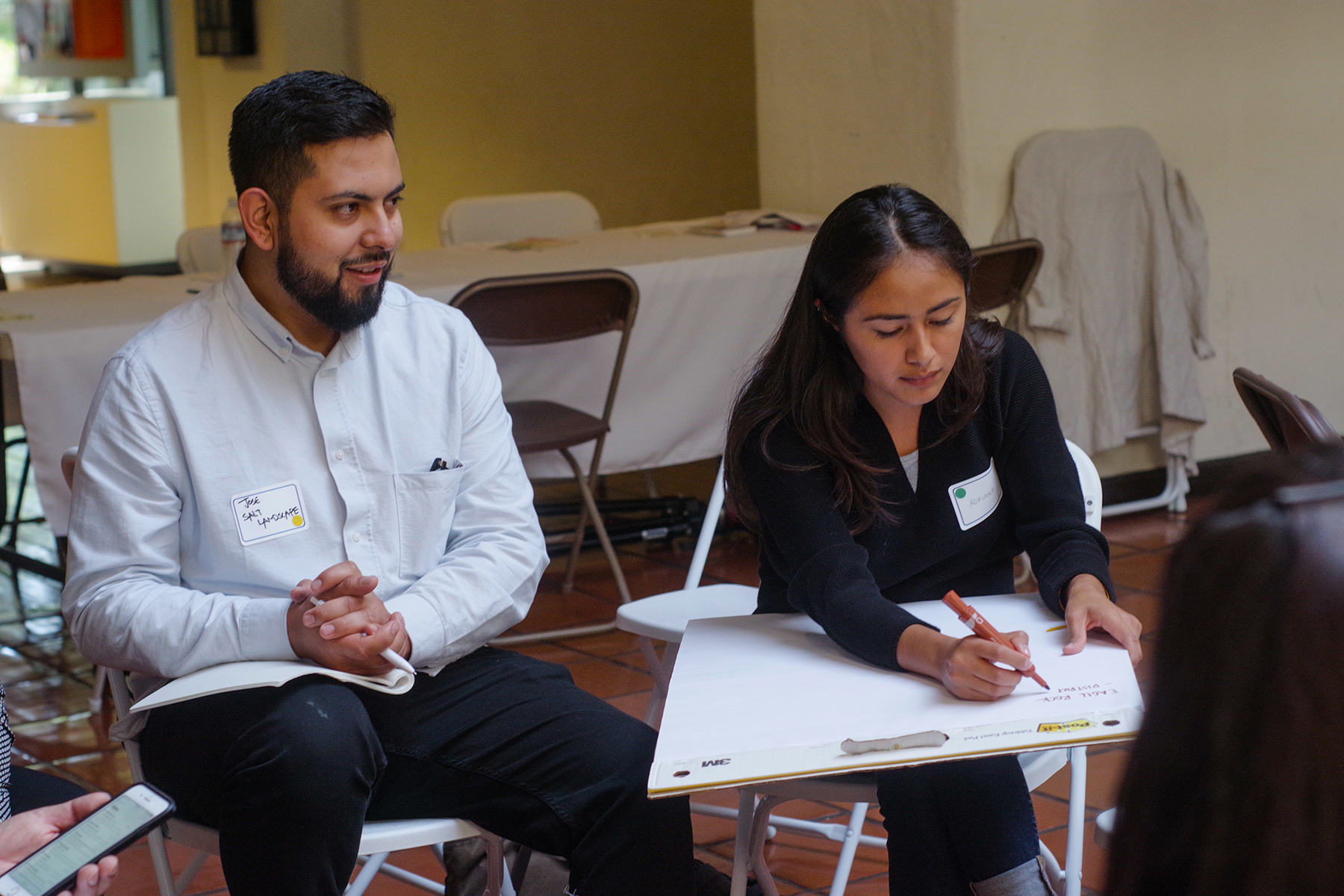“It’s time to begin a movement.” Those words, included in my final fellowship presentation for the Landscape Architecture Foundation last May, came true last week. Our first Designing Schools for Mental Health Workshop brought together mental health, education, design, and environmental justice professionals for a morning sharing session and afternoon policy workshop to start a movement. More than 100 people registered from organizations and schools all over Southern California to listen to expert speakers and participate in our brainstorming sessions.
DESIGNING SCHOOLS FOR MENTAL HEALTH WORKSHOP
Purpose
To convene the mental health, education, design, and environmental communities for a sharing and working session to facilitate school environments that support students’ mental health and well-being.
Participants
Anyone designing, working in, or caring about school environments and how they can support students’ mental health and well-being.
Keynote Speakers
Dr. William Sullivan expert on design for mental health and Head of the University of Illinois Landscape Architecture Department
Sharon Danks founder of Green Schoolyards America and author of Asphalt to Ecosystems: Design Ideas for Schoolyard Transformations
Panelists
Pia Escudero, Director of School Mental Health, LAUSD
Maryjane Puffer, Executive Director of the LA Trust for Children’s Health
Albert Grazioli, Asset Development Director, LAUSD
Eileen Alduenda, Interim Executive Director, Council for Watershed Health
Dr. Marcella Raney, Occidental College Professor Researching Student Activity and Behavior
Lead Partners
Cal Poly Pomona Landscape Architecture
Prevention Institute
Partner Organizations
American Society of Landscape Architects Southern California Chapter
Association for Women in Architecture Foundation
Amigos de los Rios
Children and Nature Network
Council for Watershed Health
Green Schoolyards America
Los Angeles Neighborhood Land Trust
Los Angeles Unified School District
Mountains Recreation & Conservation Authority
The River Project
TreePeople
Trust for Public Land
Background
Los Angeles area students experience high levels of instability and stress related to urban environmental conditions, family trauma, and neighborhood disinvestment. As an indication of the degree, fifty percent of LAUSD students suffer moderate to severe post-traumatic stress disorder. Design principles to reduce stress and to support students suffering attention deficit, sensory integration, and autism spectrum disorders are remarkably similar — provide a well-organized, comfortable, calm environment, plenty of access to nature, and small quiet places to escape chaos.
For fifty years, research has correlated access to nature with reduced aggression, reduced crime, reduced stress, and increased social cohesion. In addition to research by Rachel and Stephen Kaplan at the University of Michigan and Drs. William Sullivan, Frances Kuo, and Andrea Faber-Taylor at the University of Illinois, Rodney Matsuoka’s doctoral dissertation on Michigan High Schools related more trees and shrubs, larger classroom windows, open lunch policies, and schools on streets with higher activity levels to reduced student crime (like violence, illegal possession, and vandalism), reduced student disorderly conduct (like insubordination, fighting, and bullying), and more students planning to attend a four-year college. He also found that wide-open sports courts and fields related to higher rates of student crime and disorderly conduct.
After decades of research, this knowledge has not yet reached educators, administrators, the community, or the designers designing schools. We are taking the first step to bring together administrators, mental health professionals, researchers, trauma therapists and specialists, designers, non-profits and the environmental community to work through potential policy changes at the district and state levels as well as funding opportunities to prioritize mental health while achieving co-benefits of physical health, academic success, environmental and social justice, cleaner air, stormwater management, climate resilience, and beautiful, safe school environments.
Please help us gain momentum for this important work! Contact me if you’d like to organize a similar workshop in your city or school district.
